Russia says Ukraine in ‘final stage’ of developing ‘dirty bomb’
Ukraine is in the “final stage” of creating a “dirty bomb,” says a senior Russian official, referring to a device that uses explosives to scatter radioactive waste.
Lieutenant General Igor Kirillov, the chief of the Russian Radiation, Chemical, and Biological Protection Force, said on Monday that Ukraine had nearly completed developing what he called a “dirty bomb.”
“According to the information we have, two organizations in Ukraine have specific instructions to create a so-called ‘dirty bomb.’ This work is in its final stage,” Kirillov said in a statement. He added that Kiev was planning to accuse Russia of “using weapons of mass destruction in Ukraine and thus launch a powerful anti-Russian campaign in the world.”
According to the statement, the so-called dirty bomb will be composed of radioactive elements “creating radioactive contamination over large areas, and potentially also leading to radiation diseases” after detonation.
Kirillov’s warning came just a day after Russia’s Defense Minister Sergei Shoigu accused Ukraine of preparing a “provocation” involving the use of such a bomb.
According to the Kremlin, Shoigu sounded the alert in phone calls on Sunday with his NATO counterparts from the United States, Britain, France and Turkey.
While it does not have the devastating effects of a nuclear weapon, a dirty bomb could still contaminate large swathes of land with radioactive waste.
Russian officials have repeatedly alleged that Ukraine could detonate such a device in a false-flag operation to frame Moscow. Ukrainian authorities have made similar accusations against Russia.
Separately on Monday, Russian Foreign Minister Sergeه Lavrov also raised the issue of the “dirty bomb” purportedly being developed by Ukraine at a press conference a following talks with Secretary General of the Organization of Islamic Cooperation (OIC) Hissein Brahim Taha.
Lavrov said Moscow had already taken steps to raise the issue in international structures, “first of all” at the United Nations.
“We have information, which we have double-checked through the appropriate channels, that this is not a groundless suspicion, that there are serious reasons to believe that such things could be planned. Sergey Shoigu has agreed with some of his interlocutors to hold additional consultations on this topic at a professional level.”
Lavrov said the Kremlin was not surprised by the West’s media reaction to Ukraine’s possible use of such a bomb due to the “unconditional support that the West gives to its protégé [Ukrainian President Vladimir] Zelensky.”
Also on Monday, Russian presidential spokesman Dmitry Peskov, for his part, cautioned that certain countries’ distrust toward Moscow’s warnings regarding the development of such a bomb by Kiev does not mean there is no such a threat.
“Their distrust toward the information that was shared by the Russian side does not mean that the threat such a ‘dirty bomb’ may be used ceases to exist. The threat is obvious,” Peskov said. “It’s up to them to believe or not to believe.”
On Sunday, the US Department of State released a statement jointly issued by Britain, the US and France, claiming that London, Washington, and Paris did not consider Russian warnings about the possibility of Ukraine using the “bomb” reasonable enough.
“Our countries made clear that we all reject Russia's transparently false allegations that Ukraine is preparing to use a dirty bomb on its own territory,” the statement read.
West steals Russia’s gold via sanctions: Moscow
In a press conference on Monday, Peskov also accused Western countries of having “essentially stolen” Russia’s gold and foreign exchange reserves via sanctions.
“In general, a large part of our assets have been essentially stolen by specific Western countries,” he said, when asked by reporters about a European Union proposal to transfer frozen Russian assets to Ukraine.
Russia began its special military operation in Ukraine on February 24. Since the onset of operation, the US and its European allies have unleashed waves of unprecedented sanctions against the Kremlin and poured numerous batches of advanced weapons into Ukraine to help its army fend off Russian troops.
The harsh sanctions have frozen about half of Russia’s gold and foreign exchange reserves, which stood near $640 billion before the beginning of the operation.
Last week, European Council chief Charles Michel said the EU should consider transferring frozen Russian reserves to Ukraine.
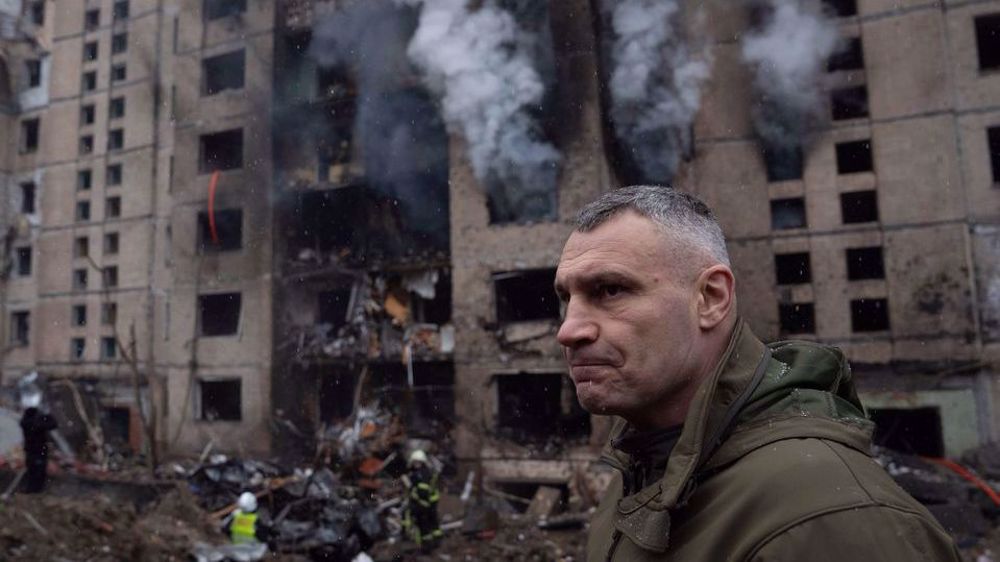
Ukraine may have to 'give up land' to Russia to secure peace: Kiev mayor
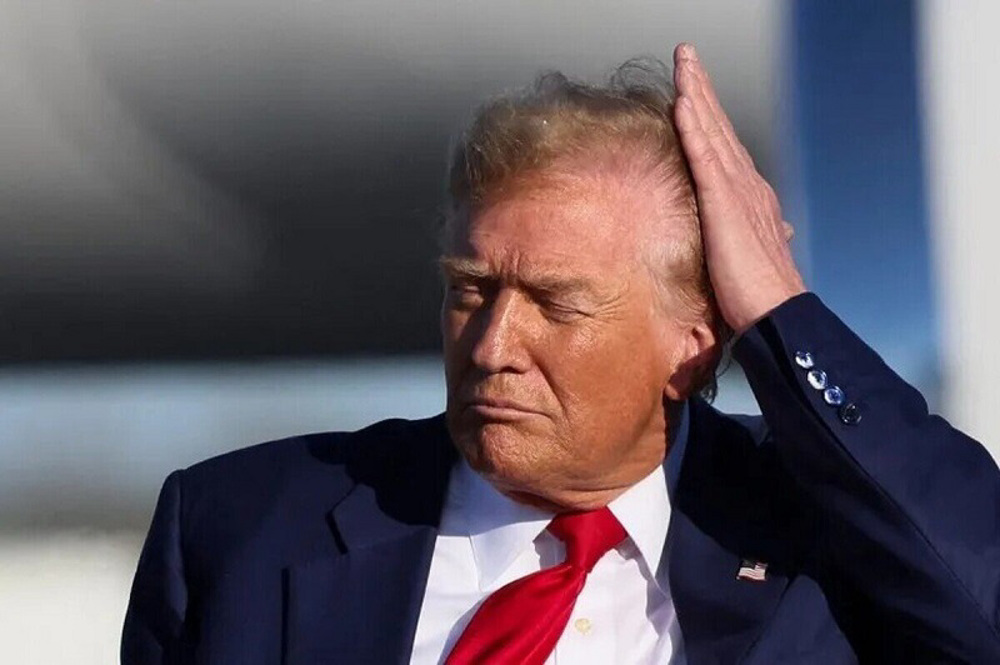
Trump Ukraine mediation muddle
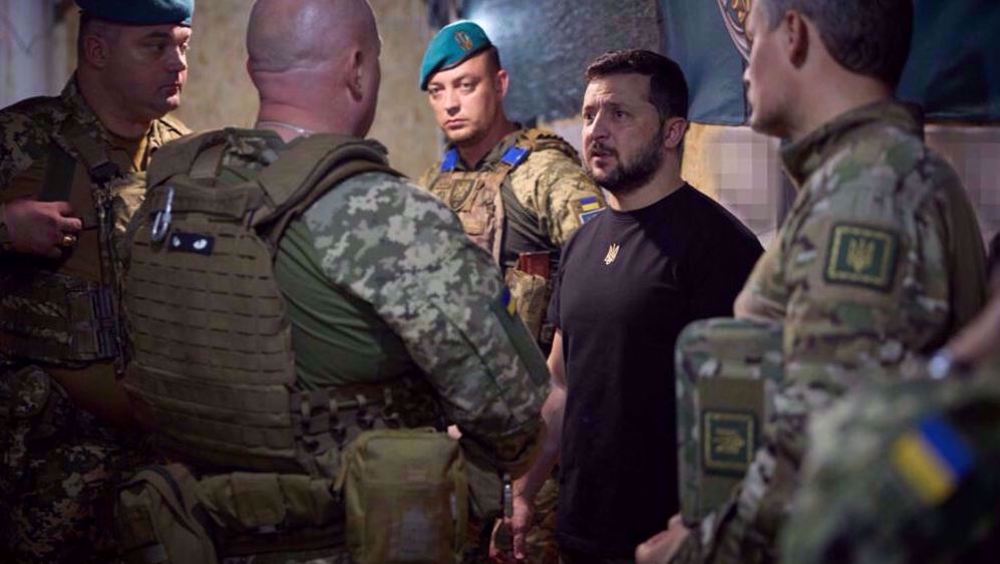
Ukraine peace talks downgraded in London as Kiev rebuffs Trump’s proposal
Iran’s foreign minister says ‘satisfied’ with progress in talks with US
MSF: 70% of burn victims in Gaza are children, little chance of recovery
Trump, Zelensky hold 'productive' talks ahead of Pope's funeral in Rome
Explainer: What is the significance of Shahid Rajaee Port for Iran?
Iran, US conclude third round of indirect talks in Oman
The case of Raffi Berg and BBC: Zionist infiltration of the mainstream media
No talks on tariffs between China, US: Chinese Foreign Ministry
Hamas: No partial truce, only comprehensive deal acceptable


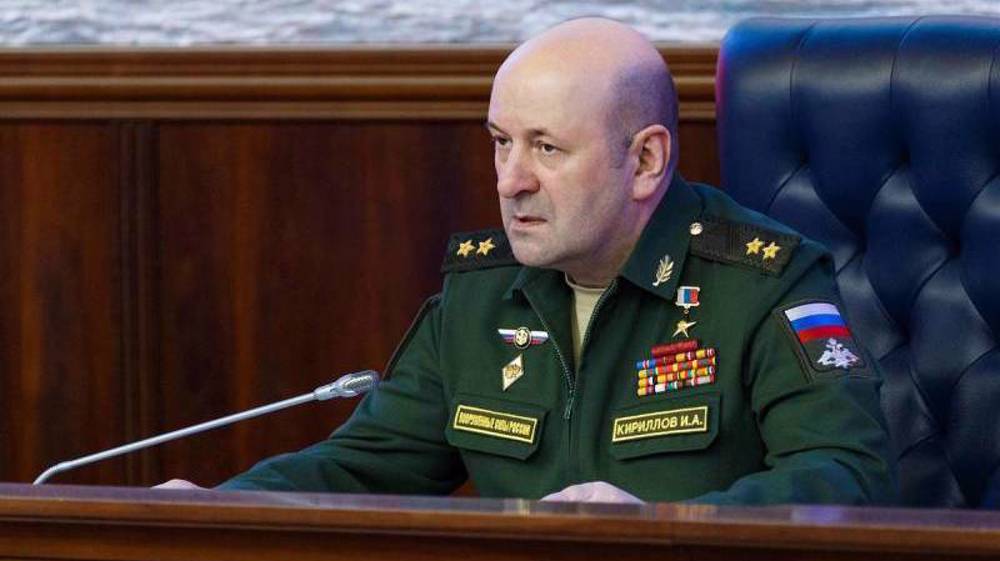
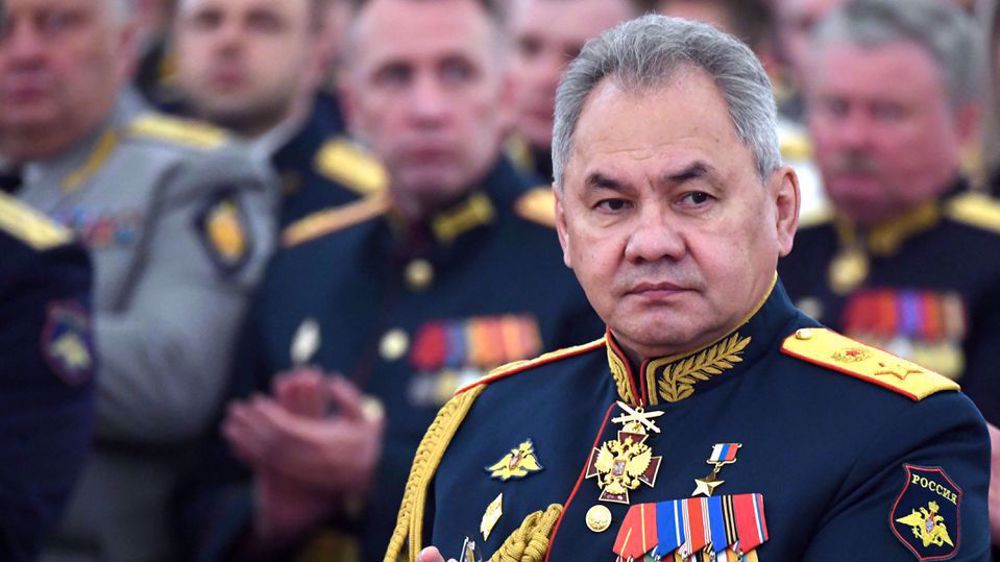





 This makes it easy to access the Press TV website
This makes it easy to access the Press TV website